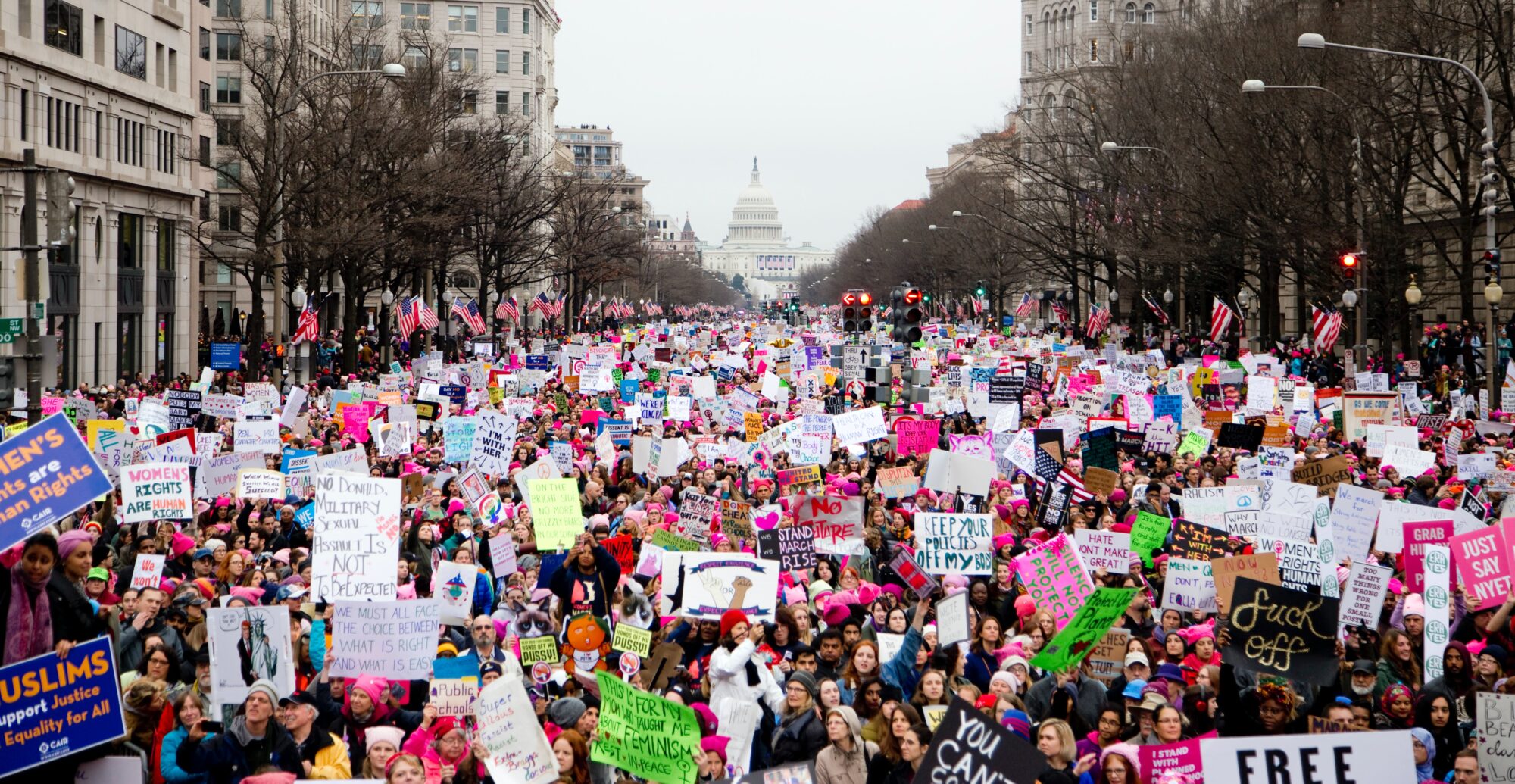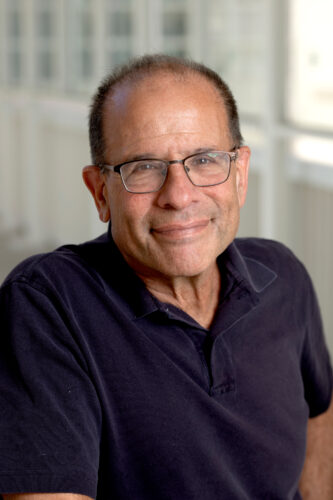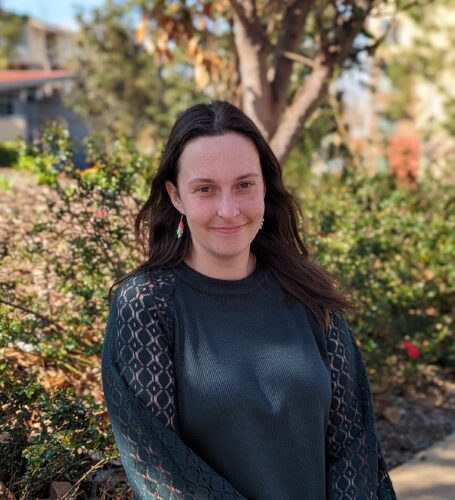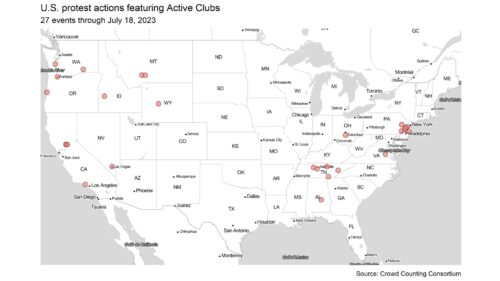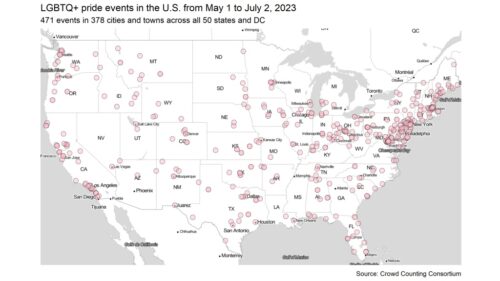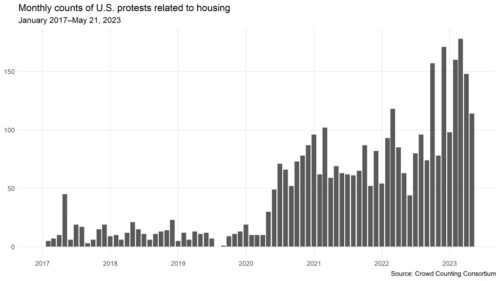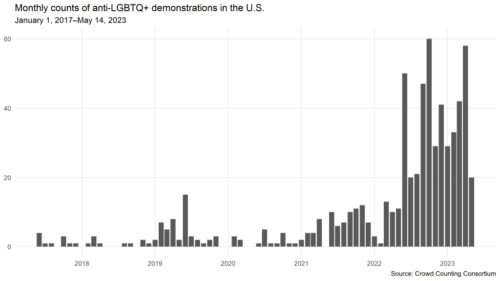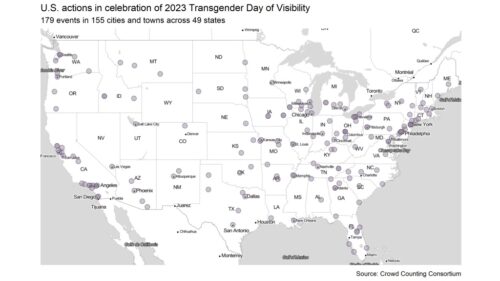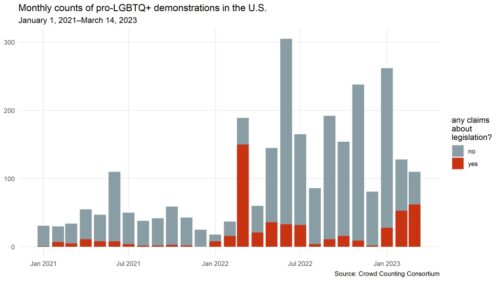
Erica Chenoweth
Frank Stanton Professor of the First Amendment
A public interest and scholarly project to document protests and demonstrations in the United States.
Nonviolent and Violent Campaigns and Outcomes Data Project, Women in Resistance Data Project
The Crowd Counting Consortium (CCC), a joint project of Harvard Kennedy School and the University of Connecticut, collects publicly available data on political crowds reported in the United States, including marches, protests, strikes, demonstrations, riots, and other actions.
The CCC emerged from a collaborative effort by Jeremy Pressman and Erica Chenoweth to accurately estimate the number of people who participated in the Women’s March on Washington (and its affiliated Sister Marchers worldwide) on January 21, 2017. Upon recognizing the growing public interest in up-to-date information on crowds — and in response to requests to continue the effort beyond the Women’s March — they and their volunteer colleagues established the CCC.
For more details, see the “Download the Data” section below.
Frank Stanton Professor of the First Amendment
Research Project Manager, Nonviolent Action Lab
Senior Fellow, AY2025-2026
Senior Research Fellow, AY2025-2026
Predoctoral Fellow, AY2025-2026
Research Associate, Crowd Counting Consortium
Protest event data from CCC’s three phases — 2017-2020, 2021-2024, and 2025 to the present — can be downloaded from the project’s Dataverse.
We only post records that we can confirm and verify through fact-checking. When you submit a record, be sure to provide a source that is publicly verifiable (e.g. a news report, a Facebook group, links to online photos with headcounts, etc) or describe the crowd-counting techniques used by onsite onlookers (e.g. sign-ins, counting through distributing flyers/handouts, counting from photos/videos, and/or other crowd density estimation techniques).
We will never post, release, or share identifying information that has not already been reported in the public domain.
Nevertheless, we urge you to avoid including personal identifying information in your submission.
We collect publicly available data on political crowds reported in the United States, including marches, protests, demonstrations, riots, and other actions. We do not count crowds at meetings, teach-ins or academic workshops, panel discussions, fundraisers, or town halls.
Our goal is to make the aggregate data on crowd numbers publicly available for each event. We are collecting this data in the public interest and to further scholarly research.
This is a public-interest project. The University of Denver’s Office of Research Integrity and Education determined that the project does not qualify as human subjects research and therefore does not require further review or oversight by its Institutional Review Board. The University of Connecticut made a similar determination.
The data and associated documentation are shared via the Harvard Dataverse:
https://dataverse.harvard.edu/dataverse/crowdcountingconsortium/
Please include a citation to the Crowd Counting Consortium such as: Crowd Counting Consortium, crowdcounting.org, accessed September 17, 2021.
Funding is made possible in part by the Freedom Together Foundation, New Venture Fund, Humanity United, the John T. and Catherine D. MacArthur Foundation, the Ash Center for Democratic Governance and Innovation and the Carr Center for Human Rights Policy, the Weatherhead Center for International Affairs, the Radcliffe Institute for Advanced Study at Harvard University, the Human Rights Institute at the University of Connecticut, the Scheidt Family Foundation, Alan R. Bennett and the UConn POLS Honors Bennett RA program, and the Russell Sage Foundation. Previously, we received support from the Carnegie Corporation of New York through the Sié Chéou-Kang Center for International Security and Diplomacy at the Josef Korbel School of International Studies at the University of Denver and the Humility & Conviction in Public Life initiative, a project of the University of Connecticut’s Humanities Institute.
We have collaborated with countlove.org, a volunteer group that developed a webcrawler to identify protests and demonstrations on a daily basis.
Commentary
Commentary
After a year that saw historic levels of anti-LGBTQ+ protest activity, legislative action, and online jawboning, millions of people turned out in May and June 2023 for hundreds of LGBTQ+ pride celebrations across all 50 U.S. states and the District of Columbia.
Commentary
On Saturday, May 20, 2023, more than 1,000 tenants, union members, community organizers, and politicians gathered at Cadman Plaza in the rain and then marched across the Brooklyn Bridge to call for lower rents in New York City and the passage of state legislation to protect tenants from eviction without good cause.
Commentary
In late 2022, I guessed that the surge in anti-LGBTQ+ right-wing protests we saw in the summer and fall of last year would ebb after the elections.
Commentary
Each year since 2009, people around the world have gathered on March 31 (or close to it) to mark International Transgender Day of Visibility (TDOV).
Commentary
For the past three legislative cycles, state lawmakers have tabled record numbers of bills that harmfully target LGBTQ+ people or seek to enforce chauvinistic ideas about sexuality and gender norms.
Commentary
Commentary
CCC logged more than 13,400 left-wing protests across more than 2,000 different U.S. cities and towns
Commentary
CCC logged more than 5,700 right-wing events in 2022
Commentary
This is a guest post by Mason Holland, an undergraduate student at the University of Connecticut majoring in Political Science. He also serves as President of the Student Body.
Commentary
Commentary
Commentary
Commentary
Commentary
So far, the Crowd Counting Consortium has logged just over 5,300 events since Biden’s inauguration on January 20, 2021.
